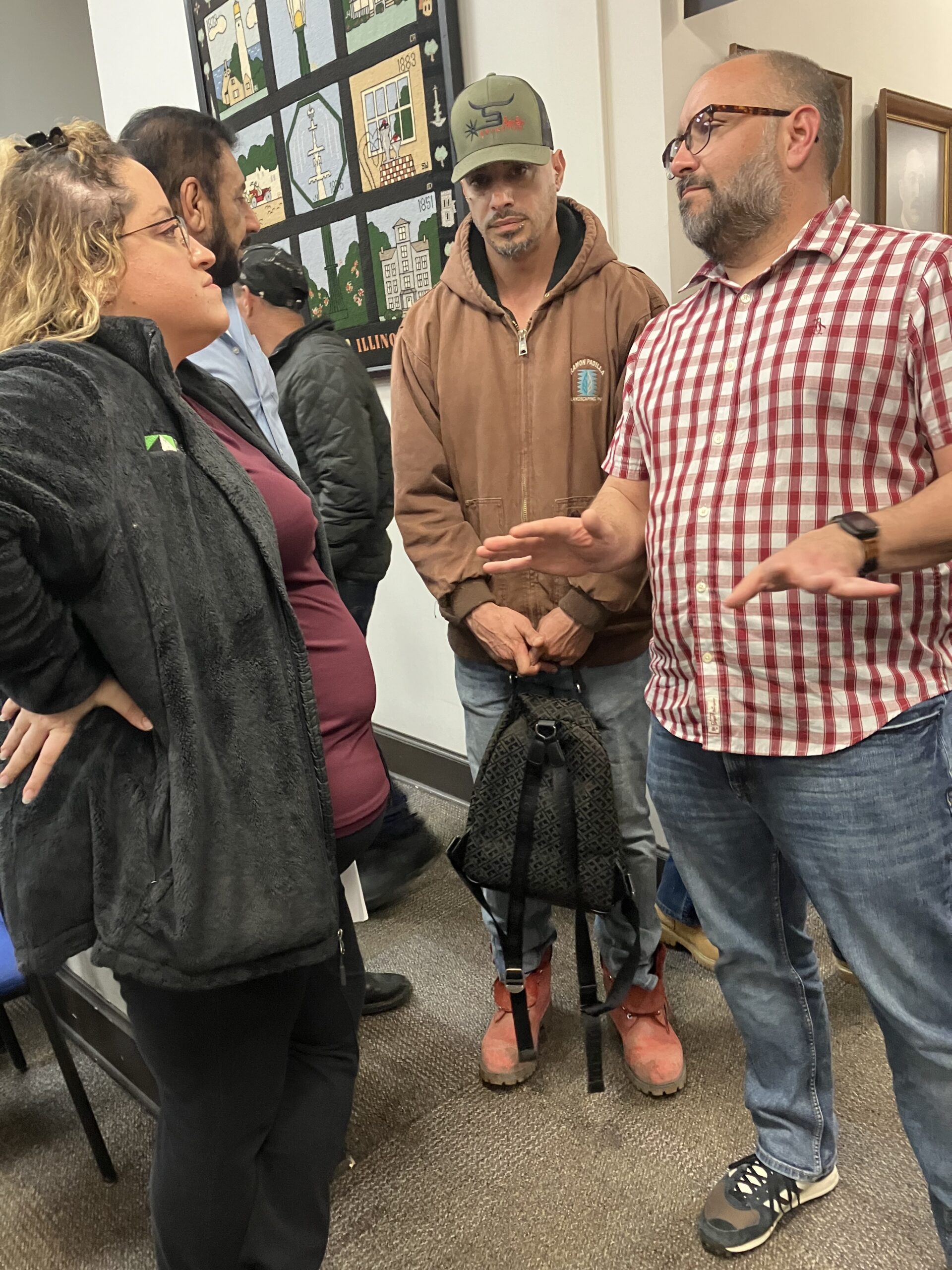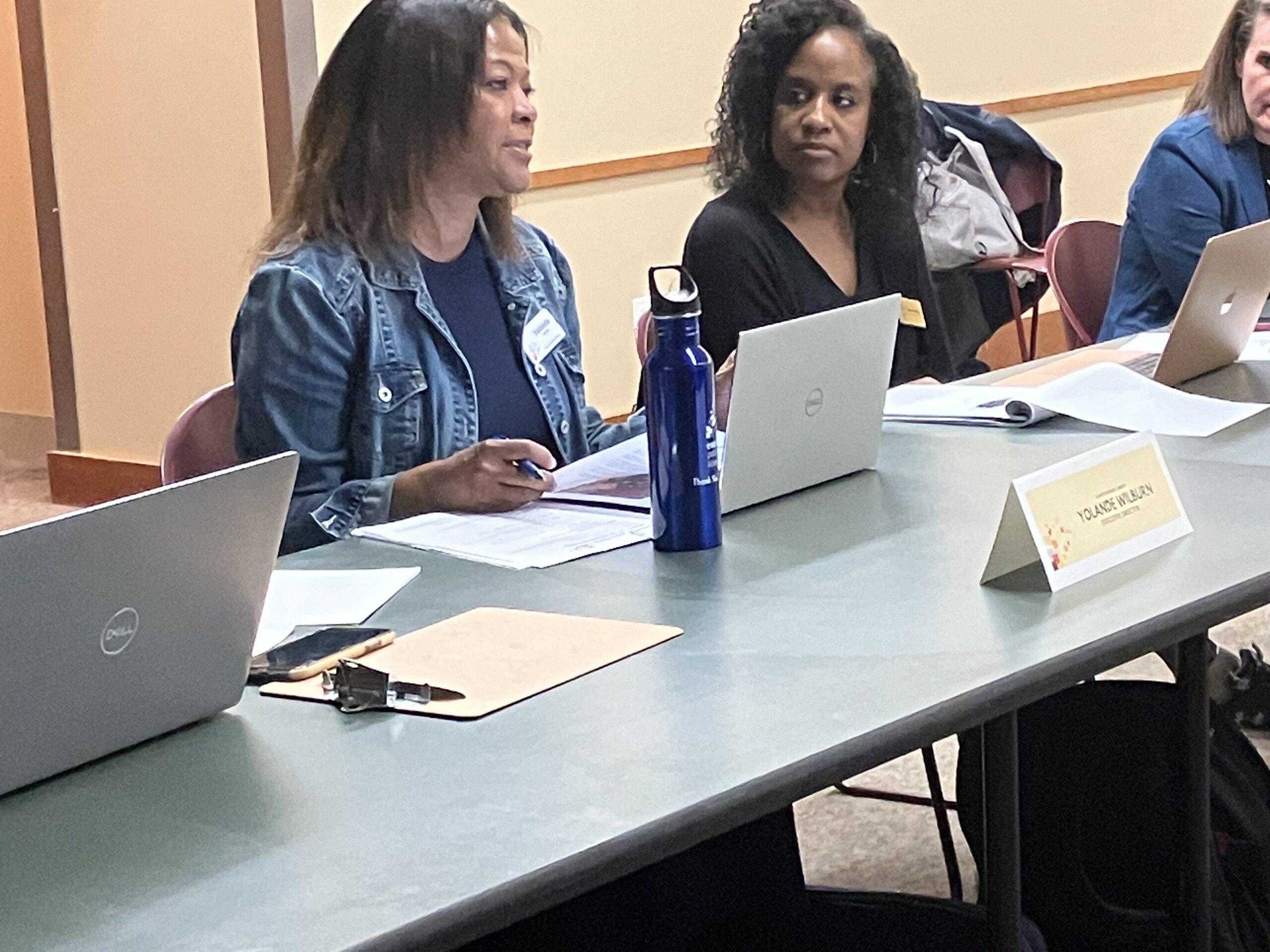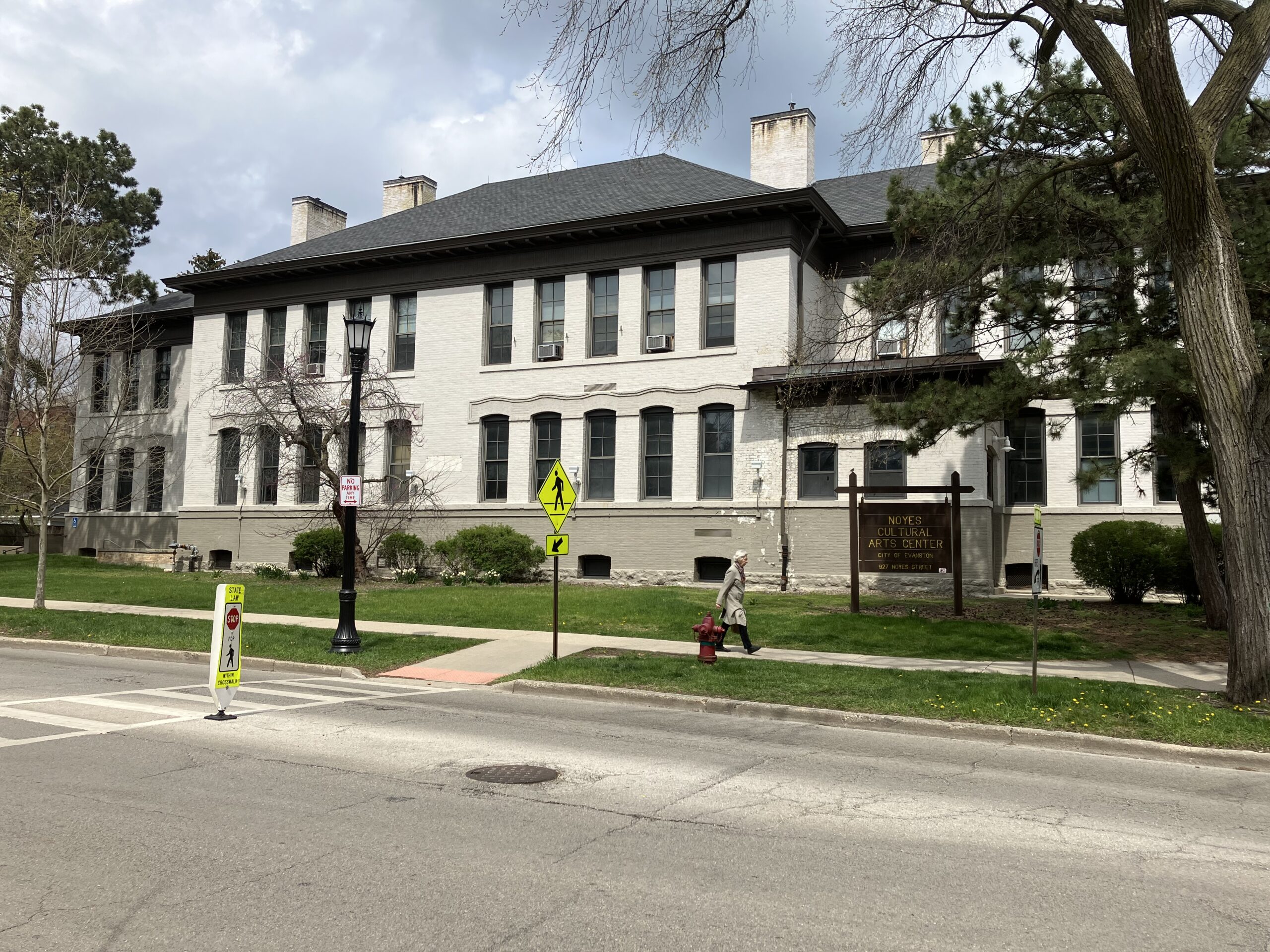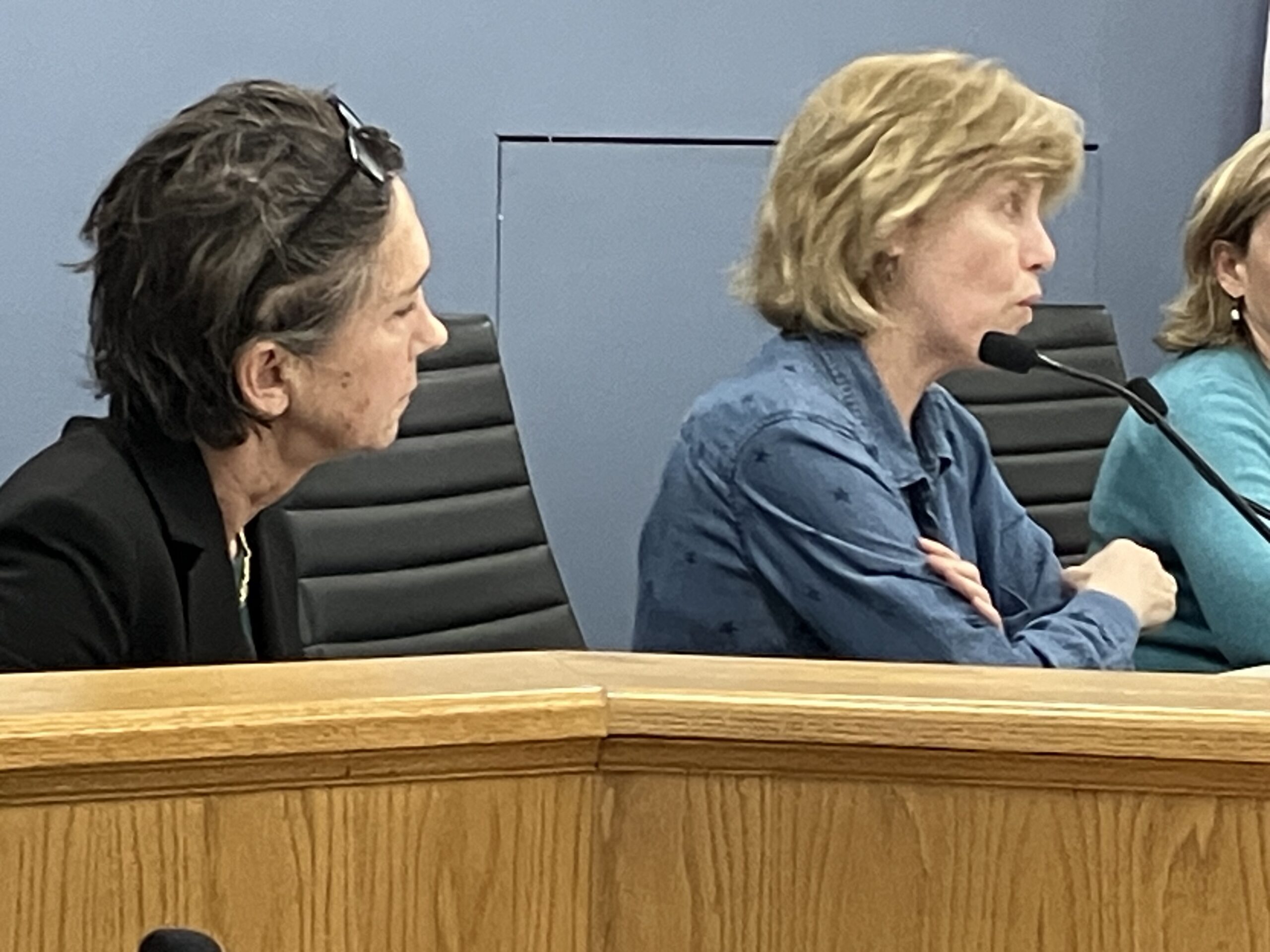‘No tiny yard is worth the cost,’ maintains one environmentalist
By Bob Seidenberg
Evanston Human Services Committee members Monday night voted to send to the council a proposal that would temporarily allow the use of gas or propane-powered leaf blowers, after first voting the issue down earlier in the meeting.
On a 4-1 vote, the committee recommended in favor of authorizing suspension of the enforcement of city code, which prohibited the use of gas or propane-powered blowers after April 1, 2023.
The proposed lifting of the ban would cover a period from March 18, 2024 through April 8. Seventh Ward Council member Eleanor Revelle cast the lone no vote.
The proposal next goes to the full council, for consideration at the body’s March 11 meeting.
Committee members were responding to an outpouring of local landscapers at the committee’s February meeting.
The landscapers, predominately Hispanic, many showing up in work clothes, packed council chambers urging the committee last month to allow the use of the leaf blowers for three weeks or more weeks in March and April as the lawn maintenance season gets underway.
Many, with small landscaping companies in Evanston as well as neighboring towns, said they have not yet transitioned to the more expensive electric blowers and said they would be unable to compete against the bigger companies. Some also spoke of being harassed for continued use of the gas blowers.
At Monday’s meeting, they were joined by many members of the city’s environmental community who had worked hard to get the ordinance banning the use of the gas blowers passed in the first place, citing the machines deleterious effects.
Ban did not happen in vacuum: speaker
Clark Elliot, a more than 40-year resident of Evanston and professor of Artificial Intelligence and Cognitive Science at DePaul University, told committee members that every scientific organization that has has every looked at gas blowers, has a connected them to a long list of illnesses, including cancer, heart disease, neurological conditions.
“Undoing our ban on leaf blowers brings back the equivalent of very nasty pollution — 105,600 cars every day, driving around Evanston,” he said.
He lugged a quieter electric powered device to the lectern that “will blow the shingles off of your garage. It’s only slightly less powerful than the petro-chemical devices we use now.”
He offered to give a demonstration of the device, right there on the council floor.
“No thank you,” said Council member Devon Reid, moving to the next speaker.
That speaker, Amy Parker, a 9th Ward resident and Natural Habitat Evanston, was also among the speakers who spoke against any rollback of gas powered leaf blower ban — “temporary or otherwise.”
“First, as you’ve heard, these machines are problematic in virtually every way, from human health to environmental impact. As Northwestern professor Nina Kraus has explained excessive sound is detrimental to all living beings. No tiny yard is worth the cost.”
“Second, Evanston’s ban did not happen in a vacuum,” she said. “Over one hundred US cities have banned, and many are considering or preparing to. In a rapidly changing world, municipalities have to adapt. Yard workers are not the only ones who will be affected. While we appreciate the committee’s kind-hearted impulse to bend the rules, surely there are ways to enhance support for smaller companies without rolling back the ban.”
A road to generational wealth for many
But landscapers, with Celia Carlino providing translation services that were not available at the committee’s February meeting, spoke of challenges transitioning to an electric system, and maintained that electric blowers have negative effects as well.
They also challenged the current ordinance not applying to city baseball fields, play areas or golf courses.
Adriana Gomez, a speaker, described herself as “someone who is in favor of environmental protection but sees first hand the impact this ordinance is having, I felt the need to speak up for the community that is being left behind. This ordinance has a clear and negative impact on our community of landscapers. It’s easy for someone who didn’t grow up with this lifestyle to say times are changing, if you can’t adapt you have to look for something else. For my father and many others this is our way of starting generational wealth in the United States.”
She maintained that big landscaping companies are now monopolizing their work due to this ordinance. Washington University in St. Louis shared that changing equipment is a big expense. And the technology for the commercial grade of battery-powered leaf blowers is still unproven.
Meanwhile, Oregon State University’s landscaping staff shared that “the combination of high financial costs, uncertain environmental impacts, and potential risks to electric leaf blowers unrealistic given the limitations.”
Further, according to a University of Southern California report, batteries had to be discarded and replaced every four months and staff had to send them to Arizona for proper disposal. These were the results from the universities. Now imagine a family-owned business in Evanston. Beyond the price electric leaf blowers don’t have enough power to remove wet leaves the increased time required to remove wet leaves only increases noise problems, labor costs and battery consumption.”
Committee members initially voted 3-2 against moving the ordinance to the council with members Krissie Harris, 2nd, Eleanor Revelle, 7th, and Reid voting against, and Bobby Burns, 5th, and Juan Geracaris, 9th, voting in support.
Most of the community members attending the meeting had filed out when Harris, who was participating remote, requested reconsideration, saying she had some confusion on what was under consideration.
Miquel Wond, one of the landscapers still left in the audience, was grateful.
“We’ll see what happens March 11,” he said, filing out.”We got to give it one more try, hopefully good news.”
“Change, that’s not an issue,” he said.
In wet conditions, landscapers can’t clear yards. A three week period, at least, “we can clean the whole thing.”
“Three weeks is enough,” he said, though “a lot of guys say six weeks.”
But three weeks should do. “Without rain,” added another man leaving the building with him.




